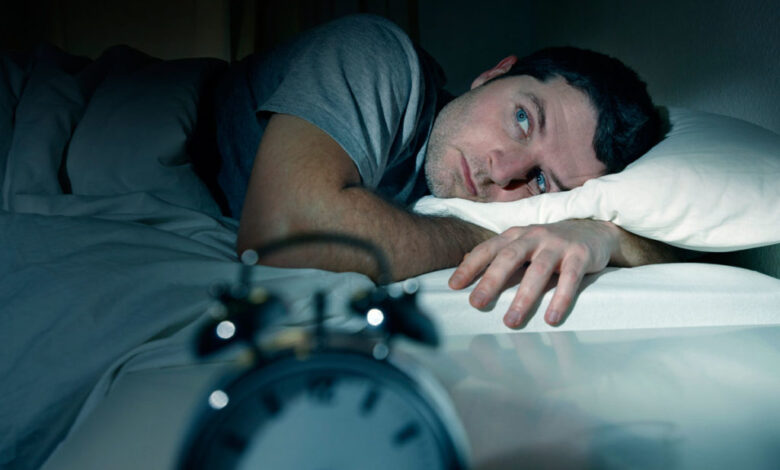Lack of sleep is a general term characterized as getting a deficient measure of rest, even though what is an adequate measure of rest can contrast from one individual to another. There are different lack of sleep stages, which can cover all-out lack of sleep (TSD) or halfway lack of sleep (PSD). Not getting sufficient rest isn’t a condition all by itself, but instead the result of different circumstances or living conditions. Proceeded with the absence of rest causes a rest shortage, which can find an opportunity to address and rearrange your rest wake cycle.
Persistent rest misfortune can adversely influence your well-being. The speed at which your body encounters the impacts of rest misfortune relies upon whether you are encountering halfway lack of sleep or all-out lack of sleep. Lack of sleep stages become more serious and extreme the more you stay alert.
Fractional Lack Of Sleep
Fractional lack of sleep includes getting less long periods of rest or more unfortunate quality rest than your body and cerebrum need to ideally work. Indications of lack of sleep, comparable here and there to indications of sleep deprivation, incorporate unnecessary daytime tiredness, inconvenience concentrating, misery, or potentially state of mind swings. The absence of rest can be a result of rest apnea or other rest problems.
The impacts of fractional lack of sleep can work over the long haul and add to your rest obligation. This frequently brings about ongoing exhaustion, lower levels of productivity, and the event of nodding off for an exceptionally brief timeframe (as long as 30 seconds). Regardless of whether you are just sleepless after a couple of long periods of rest, on the off chance that this occurs two or three evenings in succession, you might begin to foster Zopifresh 7.5 lack of sleep headaches.[2] As your rest shortage develops, it begins to reflect the lack of sleep phases of intense lack of sleep.
All Out Lack Of Sleep Stages
Ongoing and delayed lack of sleep is perilous and can be deadly. One of the longest recorded rest tests was in 1964 when a teen kid figured out how to remain conscious for 264 hours, or roughly 11 days.[3] The impacts of all-out lack of sleep can be separated into lack of sleep stages given how long you have been alert.
Stage 1 of lack of sleep is generally characterized as 24 hours without rest. As indicated by the CDC, following 24 hours without rest, your readiness is like those with a blood liquor content of 0.10%. In the United States, as far as possible is 0.08% — this shows that following 24 hours of not resting, it isn’t protected to work an engine vehicle, as your response and capacity to think are compromised.[4] After one night without rest, you might encounter peevishness, unfortunate direction, serious sleepiness, and momentary memory issues. Indeed, even after only 24 hours without rest, many individuals experience raised levels of the pressure chemicals cortisol and adrenaline.[5]
At Stage 2, or following 48 hours with no rest, every one of the side effects of Stage 1 escalates, as well as welcoming outrageous sluggishness and deteriorating mental capacity. During this stage, individuals frequently begin to encounter.
Stage 3, or going 72 hours without rest, amplifies every one of the past signs and side effects of Stages 1 and 2. Individuals may likewise start to experience issues speaking with others and foster neurosis and fancies.
At Stage, at least 4 to 96 hours of lack of sleep, individuals frequently start to have complex mental trips, mirroring intense psychoses.[6] People are seldom ready to remain conscious this long without the utilization of energizers or other outer variables.
What Does Lack Of Sleep Do To The Cerebrum?
Lack of sleep consequences for the cerebrum is truly recognizable and manifests rapidly. Lack of sleep upsets and dials back the correspondence between neurons in your brain.[7] It brings about impeded memory, a failure to answer negative improvements suitably, trouble simply deciding, and more slow mental capacity.
Does It Make Long Haul Impacts?
Constant lack of sleep can significantly affect your well-being over time.[8] It can expand your possibilities of weight, diabetes, or coronary illness. It likewise brings down your resistant framework and can diminish your sex drive.
Could You At Any Point Drop From It?
Lack of sleep can be exceptionally risky. Individuals who experience a lack of sleep are bound to swoon or precipitously drop than the well-rested people.[9]
What Are the Three Impacts Of Lack Of Sleep?
Lack of sleep can affect your psychological and actual well-being. The three most normal momentary impacts incorporate extreme daytime sluggishness, weakened memory, and trouble concentrating.
What Causes Restlessness?
Lack of sleep or restlessness can be brought about by horrible life occasions, late-night work moves that upset your circadian mood, medicine, or various rest issues. To stay away from the negative repercussions of restlessness, it is vital to distinguish what is making it and find the most ideal way to nod off for you.







